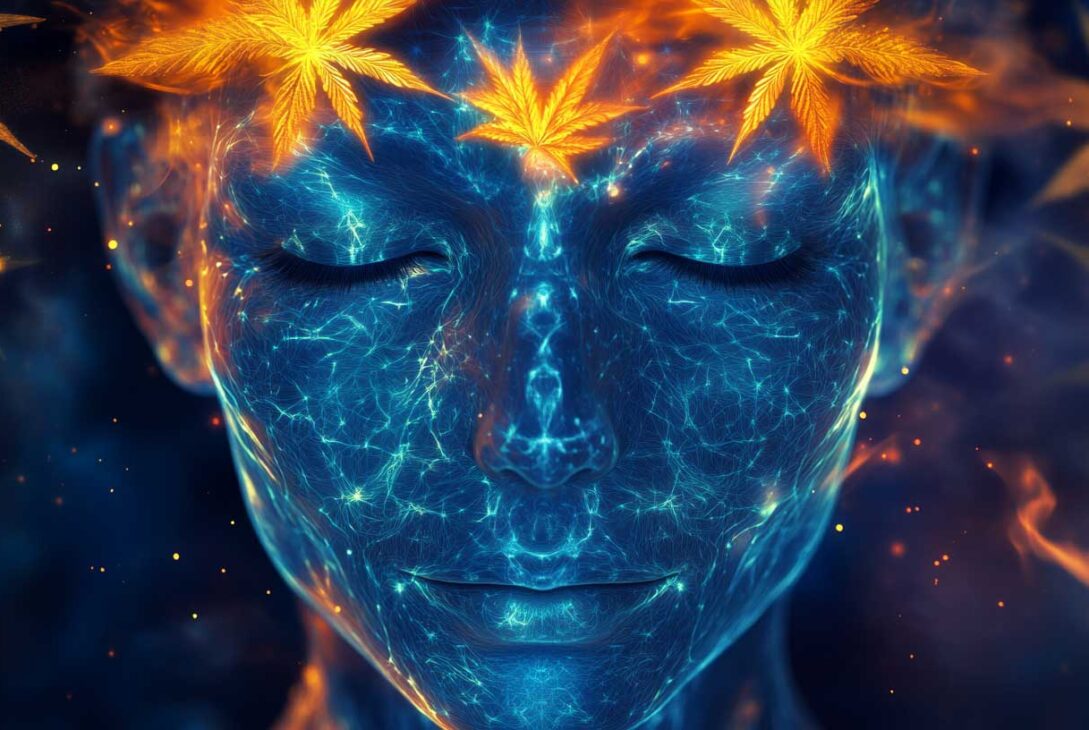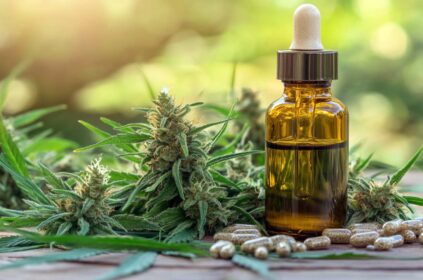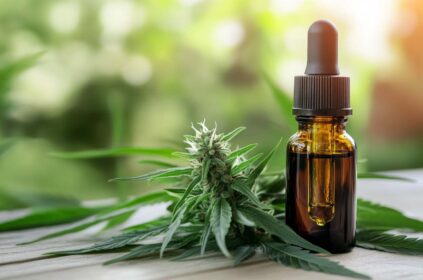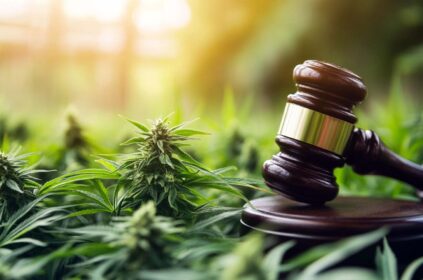Delta-8 THC has recently surged into the spotlight, captivating both medical experts and wellness enthusiasts alike. As a cousin to the more famous Delta-9 THC, Delta-8 offers its unique qualities and potential benefits, especially for those dealing with anxiety and PTSD. Understanding this cannabinoid’s characteristics is key to appreciating its emerging role in mental health treatment.
What is Delta-8 THC?
At first glance, Delta-8 THC appears quite similar to Delta-9 THC, the primary psychoactive component in cannabis that delivers a euphoric highs. However, the two cannabinoids possess distinct chemical structures which lead to different effects. Delta-8 THC exists in lesser quantities in the cannabis plant, leading many to overlook its potential. Users generally describe its effects as gentler and more manageable compared to Delta-9—often marked by a feeling of clarity rather than cloudiness, the kind that can border on paranoia.
How Does Delta-8 THC Work?
Delta-8 THC interacts with the endocannabinoid system (ECS) in our bodies by binding to CB1 and CB2 receptors. While it binds to the same sites as Delta-9 THC, its connection is looser with CB1 receptors. This translates into a more tempered psychoactive experience, leading to feelings of relaxation and euphoria without the overwhelming effects that some anticipate with higher doses of Delta-9.
When Delta-8 THC is consumed, it may elicit several sensations:
- Mental Relaxation: A soothing calm blankets the mind, often enhancing focus.
- Euphoric Lift: Users frequently report a gentle euphoria that can elevate mood without dragging one into disorientation.
- Physical Benefits: Many use Delta-8 THC to relieve discomfort associated with chronic pain or other ailments.
Delta-8 THC and Anxiety
Therapeutic Potential
As anxiety disorders become increasingly prevalent, the search for natural remedies has intensified. Many individuals have turned to Delta-8 THC for potential relief:
- Relaxation and Euphoria: A survey that examined over 500 users revealed that 71% experienced relaxation, while 68% felt euphoric post-consumption. This balance of pleasure and calm can be beneficial for managing anxiety.
- Reduced Anxiety and Paranoia: Unlike Delta-9 THC, some users find that Delta-8 reduces feelings of anxiety and paranoia. It can be particularly useful for those who find traditional THC too intense.
- Sleep Improvement: A significant number of people battling anxiety experience sleep disturbances. The calming properties of Delta-8 may provide the necessary groundwork to help restore sleep patterns disrupted by anxiety.
Side Effects and Considerations
Although Delta-8 THC is celebrated for its gentler effects, it’s essential to approach usage cautiously:
- Potential for Paranoia and Anxiety: High doses of Delta-8 THC can lead to feelings of paranoia or anxiety in some. Individual tolerance levels largely dictate these responses.
- Physical Reactions: As with many substances, users might experience side effects such as dizziness or fatigue, especially if consuming higher amounts.
- Lack of Regulation: A significant concern is that the Delta-8 market is poorly regulated. Variability in potency and presence of contaminants can alter the experience dramatically. Quality control is key.
Delta-8 THC and PTSD
Potential Benefits
Post-Traumatic Stress Disorder (PTSD) is a debilitating condition that can result from traumatic experiences. Delta-8 THC is emerging as a potential ally in this fight, offering several benefits:
- Anxiolytic Effects: Due to its ability to reduce anxiety in a manageable manner, Delta-8 THC could provide a safer alternative for individuals dealing with PTSD-related anxiety.
- Enhanced Sleep Quality: Sleep disturbances are often at the forefront of PTSD. By promoting relaxation, Delta-8 THC can facilitate improved sleep, vital for recovery.
- Pain Management: Chronic pain is a common companion for many with PTSD. Delta-8 THC may offer not just mental relief but potential physical comfort, addressing tension often held in the body.
Research and Evidence
Although comprehensive clinical research specifically addressing Delta-8 THC and PTSD is sparse, anecdotal evidence underscores its potential value. Users share their experiences, noting positive effects on anxiety levels, sleep quality, and overall well-being. However, this field is ripe for further study.
Frequently Asked Questions
What is the Best Dose of Delta-8 for Anxiety?
Starting with a low dose is generally advisable. A commonly referred guideline is to calculate based on body weight: (0.05) x (your body weight in lbs.) = your daily dose of Delta-8 for anxiety.
Which Strain of Delta-8 is Best for Anxiety?
Indica strains, notably those high in terpinolene, like Strawberry Fields and Purple Zkittlez, are often favored for their calming effects.
Can Delta-8 Help with Sleep and Anxiety?
Yes. Users frequently report that Delta-8 THC aids in both improving sleep quality and minimizing anxiety through its calming nature.
Is Delta-8 Safe for Long-Term Use?
The long-term safety of Delta-8 THC remains uncertain. The market’s lack of regulation creates concerns about product quality and potential contamination. Consulting with healthcare professionals before use is prudent, particularly for those with preexisting conditions.
Conclusion
Delta-8 THC offers a promising avenue for those seeking relief from anxiety and PTSD. Its unique psychoactive profile, characterized by gentle effects that avoid the pitfalls often associated with other cannabinoids, makes it an intriguing option. However, users must exercise caution. Understanding appropriate dosages, recognizing potential side effects, and choosing high-quality products are non-negotiable steps towards a positive experience.
Actionable Tips
- Start with Low Doses: Determine your comfort level by beginning with a low dose.
- Opt for Quality: Always choose third-party lab-tested products to ensure safety and efficacy.
- Seek Professional Guidance: Discuss any concerns or existing conditions with a healthcare professional before diving into Delta-8 THC use.
By diving into the profile of Delta-8 THC, individuals can begin to appreciate its potential in addressing anxiety and PTSD, paving the way for informed decision-making in their wellness journey. As the conversation around this cannabinoid continues to foster, more will be revealed about its benefits and applications in mental health. For the latest insights and tips on hemp and CBD, visit our blog or explore our resources at mycbdadvisor.com.




















